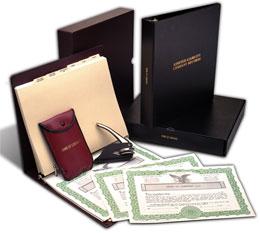
It is a cold, rainy morning in Dallas, Texas. The low cloud cover hides the tops of the downtown buildings and everything is cast in a gray hue. I am waiting for my contact under the hotel awning, anxious to get started with the task at hand.
My contact runs through the rain from the corner of the block. He didn’t bring an umbrella and he is quickly getting soaked. As he runs up to me panting, I notice that he is not wearing the proper gear for this assignment. We casually shake hands, his grip limp and clammy. I turn and he follows me into the hotel.
Our wet shoes squeak on the hotel’s marble floor, and I imagine that I can smell the anxiety on my companion. I walk with purpose as he struggles to keep pace with my wide gate. As we reach the door to the inner room, I pause. I take one last look at my contact, mentally shake my head at his appearance, then I take a calming breath and open the door.
In the room are two gentlemen in suits, a woman seated before a table, and a man with a video camera. I nod at the woman as I approach the two men. I reach quickly into my pocket, maintaining eye contact with my adversary at all times, and I quickly produce… a business card, “Hi, I am Jacob Thomas. Are we ready to proceed?”
In today’s world, Lawyers are often referred to as “gunslingers,” “hired guns,” “pit bulls,” or “bull dogs.” There is infamous Dallas plaintiffs’ attorney who refers to himself as “The Hammer.” Honestly, I kind of like the references, but they are generally laughable. Most of the attorneys that I might refer to as “pit bulls” are small, elderly men who are just generally mean spirited and real pains in the neck. Are they good lawyers? Some of them, but many of them are successful only in their attempts to make life difficult. They tend to make a lot more money than they should on relatively simple cases because their sole strategy is to create more work. That being said, there are some clients that demand this approach and are only too happy to pay for it.
I recall my torts professor, Michael Morrison, once commenting that civil trial law has replaced dueling as a means of resolving disputes. As such, lawyers are the new dueling blades. This image comes to mind often when meeting with new clients.
Recently I had a meeting with a family who was anticipating a dispute with their builder. The construction of their new home was not going smoothly and they were hoping that getting me involved would move things along. Over the course of the consultation, I explained to them that I would be happy to help, but that bringing a lawyer into a business dispute is analogous to bringing a sword to a meeting.
The analogy goes like this: Prior to the meeting, the other party may be considering ways to defuse the situation, they are anticipating a conversation between equals. As soon as they see you brought a sword, they get nervous, wondering if they should have brought a sword, and looking for potential escape routes. As soon as the sword is brandished, all thoughts of cooperation vanish. If you are earnest, you might be able to convince them that you brought the sword because you were worried that they would show up with a gun, but that rarely works. The mere presence of the sword has changed the very nature of the meeting.
I tell my clients that when they hire me, they are hiring me to start a fight, or to join one that was started by someone else. I tell them that I am a damn good fighter, but when you get into a fight, you are not going to be the only one throwing punches, the other side is going to fight back. This is an important conversation to have with a potential client because most clients believe that they are absolutely correct, the other side is absolutely wrong, and that I will be able to simply walk amongst the lions and make them lie down. Oh, if only that were the case. If I were that good, I would need to have five times as many clients or I would go out of business as a result of my own success.
Lawyers do not earn monikers such as “gunslinger” and “pit bull” as a result of their appearance, but because they are the modern dueling weapons in our civilized society. While I like to think of myself as a problem solver, I try to stay aware of the fact that my mere presence at a meeting, or my letterhead on a correspondence, changes the very nature of a dispute. If you have a useful approach for minimizing the effect of your involvement in an otherwise friendly dispute, I would love to hear it. Please add your view to the conversation in the comment section below.



